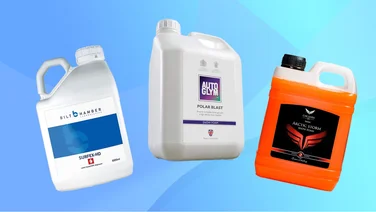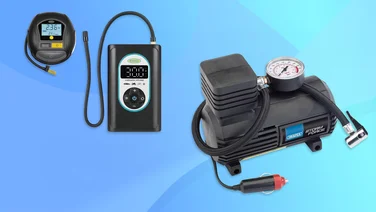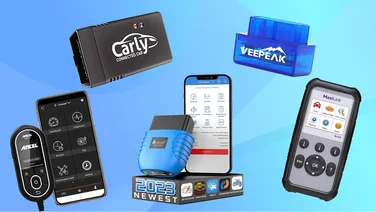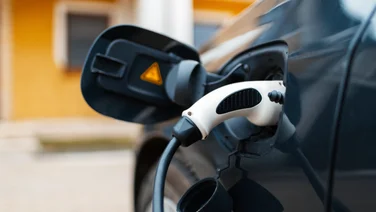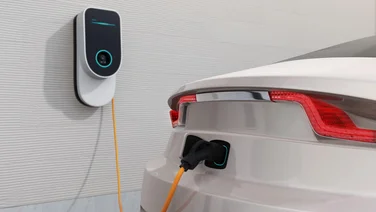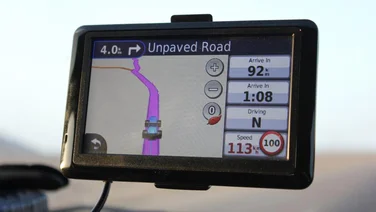To help us provide you with free impartial advice, we may earn a commission if you buy through links on our site. Learn more

Car batteries go through a lot. They have to deliver enough punch to start your engine every day and they’re responsible for ensuring your lights, radio, heating, electric windows, and sat-nav operate properly. And, all the while, they’re nestled in our cars’ engine bays in extreme heat when the engine’s on in the height of summer, and extreme cold when it’s off in the depths of winter. But the only time most of us give them a second thought is when they’re flat.
Look after a car battery and they can last for years, but treat them poorly and they can be destined for the recycling centre in a matter of months.
Choosing a replacement battery can be a minefield because there are a myriad of different dimensions. Not only that, but different batteries deliver different amounts of electrical current (measured in amperes, or ‘amps’), so you can’t just fit any battery into your car.
That’s why, to deliver our best buy verdicts, we’ve broken the market down into types of batteries (all explained below) and have scoured a range of online retailers to see which batteries motorists consider the best of breed.
That means that, while our recommendations are a useful starting point, they may not be correct for your car. Most online retailers allow you to search for the correct batteries by entering your car’s registration number, or simply make and model, so you can be sure you’re buying the most suitable battery for you.
Best car batteries: At a glance
- Best lead acid car battery: Bosch S4 | £73
- Best EFB car battery: Halfords EFB | From £150
- Best AGM car battery: Exide EK AGM | £153
How to choose the best car battery for you
What size car battery do I need?
The size of the car battery you need will be governed by the amount of space there is for it under the bonnet (or in the boot or, in some cases, under the rear seat). The position and type of terminal varies too. That’s why retailers’ online search tools are so important to find the right fit – buy a battery that’s too big and it may not fit, too small and it will slide around, and if the terminals are in the wrong place you won’t be able to connect it at all.
Helpfully, all of this has been distilled into a three or four digit code, such as 096 or 063, which will be displayed on the battery itself.
What does CCA and AH mean on a car battery?
These two abbreviations relate to the electric current, which is the rate at which charge can flow around a circuit. And, as most modern car batteries are 12 volts as standard, current is the main varying factor.
AH stands for ampere/hours and can determine how long a battery will last before needing to be recharged. CCA stands for cold cranking amps and, as the name might suggest, indicates the battery’s ability to ‘crank’ – ‘turn over’ or, simply, start – the engine in cold weather.
So the bigger the CCA, the better, right? Up to a point, yes. You will pay more for something with a bigger CCA figure and it’s only worth it if your car can use it. Again, it’s essential to check using the online search tools, or your car’s handbook, to determine which battery is correct for your vehicle.
What is a lead-acid battery?
Despite recent advances, lead acid battery technology is still the most common found in our cars. They’re cheap, durable and, provided you use your car regularly and give it the occasional long run, should last for years. You can expect to get around 20,000 starts from a lead acid battery, but they’re not suitable for cars fitted with fuel-saving start-stop systems.
What is an EFB battery?
Enhanced Flooded Batteries (EFB) are a step up from lead acid batteries and are suitable for cars with start-stop systems since they’re able to handle upwards of 250,000 starts in their lifetime. Which might sound like a lot, but start-stop systems can cut the engine dozens of times every journey. Even so, you can expect these batteries to last up to six years – much longer than a lead acid battery.
While you can step up from an EFB to an AGM battery, you shouldn’t take the cheaper option and step down from an EFB by fitting a lead acid battery. Using a lead acid battery can trigger faults with your start-stop system, as well as other features, and the battery’s lifespan will be significantly reduced.
What is an AGM battery?
Absorbent Glass Mat (AGM) batteries are the most advanced batteries you’ll find in a car right now, unless you’re driving a plug-in hybrid or a fully electric vehicle. AGM batteries are also suitable for cars with start-stop systems, but they offer the potential for many more starts than an EFB battery and will have a longer service life. As you might expect, they are the most expensive to buy, but their durability could make them the most economical in the long-term.
They only tend to be factory fitted in more premium and high-end vehicles. However, it may be beneficial to switch from EFB to AGM if your car has a lot of on-board tech, or if you frequently make journeys so short that the battery is unable to recharge.
READ NEXT: Best jump starters
The best car batteries you can buy in 2023
1. Bosch S4: Best lead acid car battery

Price when reviewed: £73 | Check price at AmazonPretty much irrespective of size and type, the Bosch S4 is enormously popular among owners, scoring upwards of 4.5 stars across Amazon and Euro Car Parts. It’s based around their patented ‘PowerFrame’ design which Bosch claims optimises the flow of current and reduces internal corrosion. It’s designed to be completely maintenance free under normal conditions, and features covers which minimise the risk of spilled acid, should there be a problem.
The battery features a strong, ergonomic handle which makes the weighty battery easier and safer to carry and install. Depending on the size, the S4 has a CCA of up to 830 amps, which should be way in excess of what most people will need in the UK. The links we’ve provided are specific, so you might need to have a look for the speicifc size you need.
Key specs – Technology: Lead acid; Suitable for: City cars to mid-size models; Suitable for start-stop: No; Warranty: Two years
2. Halfords EFB: Best EFB car battery

Price when reviewed: From £150 | Check price at HalfordsBuying a replacement EFB battery can really hit you in the wallet, but the Halfords EFB scores huge points for its affordability and could cost you as little as £150, depending on the size. And that price tag is particularly appealing when you factor in a five-year warranty. For an additional fee, Halfords will even fit it for you – either at a store or with its mobile fitting service – which you can arrange online as you purchase the battery.
Halfords’ EFB is available in three common sizes – 096, 100 and 110 – and has a near-five-star rating across the board. Their EFB range is compatible with start-stop systems and they claim to be capable of 270,000 starts. Depending on size, the batteries boast a CCA rating of up to 730 amps.
Key specs – Technology: Enhanced flooded battery; Suitable for: City cars to mid-size models; Suitable for start-stop: Yes; Warranty: Five years
3. Exide EK AGM: Best AGM car battery

Price when reviewed: £153 | Check price at Amazon AGM batteries are almost always the most expensive option, so it’s worth ensuring you buy something from a respectable brand. With their 130+ year history, you can certainly describe Exide as that – they supplied batteries for all of NASA’s Apollo missions – and the Exide EK range has been approved by a number of car manufacturers.
Like other AGM batteries, the EK range suits larger vehicles, especially those with power-hungry features, and it’s been designed for the continuous charge-recharge cycle of start-stop systems. Depending on size, they boast a CCA of between 680 and 950 amps. Across Euro Car Parts and Amazon, it’s a near perfect score from customers.
Key specs – Technology: Absorbent glass matt; Suitable for: Large cars, SUVs, vans; Suitable for start-stop: Yes; Warranty: Three years



